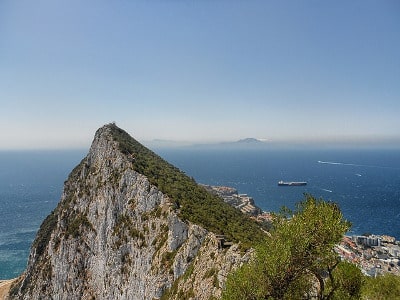Things to consider when buying a property abroad
If you’re thinking about buying a property abroad, there are multiple factors to take into consideration first. Aside from the process being more complicated due to distance, each country has its own regulations, systems and taxes that come into play, which is why buying a house overseas that you intend to live in requires plenty of research.
We’re dedicated to delivering tailored mortgage solutions that enable our clients to achieve their unique goals and lifelong dreams. In this guide, we’re sharing answers to the main concerns that arise during the international property buying process. If you have any more questions having read this guide, then speak to our trusted mortgage broker to find out more about possible international mortgage solutions.
How do I search for a property overseas?
It all starts with an online search. There are multiple websites out there that allow you to find your dream properties around the world, such as OnTheMarket, Rightmove, PrimeLocation and A Place in the Sun. These websites and many others offer advanced international property searches that allow you to find the perfect house to suit your requirements, expectations and lifestyle.
Consider where the property has been built
Buying a house abroad needs to be approached with extreme attention to detail. One of the first questions you should ask is where the property has been built, as this will determine whether the land was set aside for residential use, or intended as either a green belt or for agricultural purposes. In order to gain this information, it is strongly recommended that you take on the services of an English-speaking lawyer based in that country but not locally, as this way you will receive unbiased insight and guidance.
Occasionally a British buyer will purchase a property in another country that has been built without the right permits, which can inevitably result in the home being repossessed and eventually demolished. Needless to say, this is the last thing you want to happen, which is why confirming the authenticity of the site is the first place to start.
An independent valuation is essential
When buying a property abroad, it’s also important to obtain an independent valuation from a professional surveyor. This applies even if the property is newly built and part of a wider residential area, as the surveyor will be able to let you know if there are any current or potential issues relating to stability, safety and compliance.
Relatively common problems take the form of houses in some countries being constructed on weak soil, lacking proper foundations, or consisting of inferior building materials. Another key consideration is that the property may be located in an area that is prone to extreme weather conditions, such as major storms, excessive flooding, earthquakes, tornados or even volcanic activity.
Check planning permission and licenses
During the process of buying a house abroad, you need to gather full information with regards to planning permission. Even if the property’s size and layout are more than sufficient and you don’t plan to extend or renovate the premises, the correct licenses need to be in place in order for you to access utilities such as energy and water. This is more commonly an issue with newly built houses that haven’t yet been lived in, although checking the relevant planning permission information is always a wise investment of time.
Research the neighbourhood
Similar to the UK property market, buying a house overseas will involve reading through multiple property listings, all of which paint a wonderful picture of what it’s like to live there. However, these descriptions often exaggerate the good and can sometimes omit the bad, which is why thorough research is required. Issues that may arise are loud nightlife, heavy traffic and illegal activity in the vicinity of the property, or lack of immediate access to everyday amenities and emergency services.
There are a few ways to get a better feel for the area surrounding a property overseas, if you don’t already live there, such as searching for the neighbourhood on Google News and individual news websites, having a “walk around” on Google Maps, and checking the country’s crime rates (some countries also provide online crime maps that pinpoint hotspots of illicit and antisocial activity).
Getting a mortgage for a property overseas
When it comes to taking out a mortgage on an overseas property, expert advice is of the utmost importance. Your mortgage advisor will talk you through all of your options and how the process works, including factors that are specific to the country you’re considering. For example, when a mortgage is paid in a foreign currency, the lender must inform you if the exchange rate changes by more than 20%, as this could affect your ability to make your monthly payments.
You also need to bear in mind that the process of buying a property abroad isn’t regulated by the Financial Conduct Authority (FCA), which means that you won’t be offered protection by the Financial Ombudsman Service or Financial Services Compensation Scheme.
You’ll need the contract translated
If you’re looking into buying property abroad in an English-speaking country, the contract will almost certainly be in English. However, when it comes to countries that have a different official language, it’s likely that you will only receive one contract which will be in that language.
Even if you speak the lingo perfectly, it’s strongly recommended that you have the contract professionally translated. In the event that you are given two contracts, one in English, it is also a savvy move to have it checked by a professional translator who can confirm whether or not it is identical to the other.
How much will the property cost to maintain?
The maintenance of a property can cost more than you initially anticipate, especially when it’s located in a different country. For instance, even if the area isn’t prone to strong gales, it might undergo periods that are a lot wetter, windier and colder than the average UK winter. This can greatly affect a property in terms of everything from general appearance, to the efficiency of its plumbing and heating systems.
Similarly, whilst living in a hot, sunny country is a dream that most Brits share, this can bring its own costs. Consistently hot and humid weather can weaken structures and bleach furnishings, so this needs to be factored into your ongoing budget.
Taxes and fees when buying a house abroad
As with any house purchase, you’ll need to account for any tax that you will be liable to pay, both in the country where the property is based, and in the UK if applicable. Additional fees can vary but often include the bank’s arrangement fee, stamp duty, and costs attributed to the surveyor, land registration and any legal support.
Also make sure to bear in mind that exchange rates can change suddenly, which may make a significant difference to a property’s value, mortgage payments and your monthly cash flow.
How easy will it be to sell the property?
In many cases when buying a house overseas for personal occupation, the last thing that crosses the buyer’s mind is how easy it will be to sell. Still, this should always be taken into account, as circumstances and even life goals can change, which could result in you one day wanting to put the property back on the market.
By thinking about the process involved in selling the house in the future, you can determine whether or not that particular property is right for you.
Consider country-specific factors
The points above apply to buying a house abroad regardless of which country it’s located in. On top of this, each country will have its own regulations and factors to consider during the process of purchasing a property. Below are a few popular examples of country-specific factors to consider, which you can find out more in this guide to buying property abroad.
Buying a property in France
When purchasing a house in France[EP1] , many buyers only become aware of the completion document (which is called “acte authentique”) when the purchase is being completed at the Notary’s office. This is an important document that you should read well in advance, so make sure to request one and have it translated, followed by consulting an English-speaking French lawyer to go through the finer details.
Buying a property in Portugal
Taking on the services of a fiscal representative is required when purchasing a Portuguese property[EP2] , as they will help you to communicate with the Tax Administration during the entire process.
Buying a property in Germany
The standard minimum deposit when buying a house in Germany [EP3] is 20%, although expats are regularly required to pay between 30% and 40% due to there being higher risk.
Buying a property in Spain
When buying a property in Spain, the form of ownership is an integral element. This should be agreed and submitted before anything goes ahead, as it can potentially save you up to a five-figure sum in the long run when it comes to taxes and inheritance.
How do I buy property abroad?
We’re here to provide the highest calibre of mortgage solutions, which is why we’ve partnered with our trusted mortgage advisor, who will help you to fully understand what’s involved when buying a property abroad. To get started, book your free overseas mortgage evaluation today.
This communication is for informational purposes only and is not intended to constitute, and should not be construed as, investment advice, investment recommendations or investment research. You should seek advice from a professional adviser before embarking on any financial planning activity. Whilst every effort has been made to ensure the information contained in this communication is correct, we are not responsible for any errors or omissions.

 Recently, the Financial Conduct Authority released its Financial Lives Survey 2017, which suggests that many savers lack understanding of how their pensions work. The survey gathered responses from just under 13,000 UK consumers and aimed to gain an insight into their experiences of retail financial products and services.
Recently, the Financial Conduct Authority released its Financial Lives Survey 2017, which suggests that many savers lack understanding of how their pensions work. The survey gathered responses from just under 13,000 UK consumers and aimed to gain an insight into their experiences of retail financial products and services. At the beginning of March 2017, a report titled “Brexit: Gibraltar” was published by the House of lords EU Select Committee. The purpose of the report was to make sure UK Government does not forget about Gibraltar during negotiations for an exit deal, ensuring its voice is heard.
At the beginning of March 2017, a report titled “Brexit: Gibraltar” was published by the House of lords EU Select Committee. The purpose of the report was to make sure UK Government does not forget about Gibraltar during negotiations for an exit deal, ensuring its voice is heard.